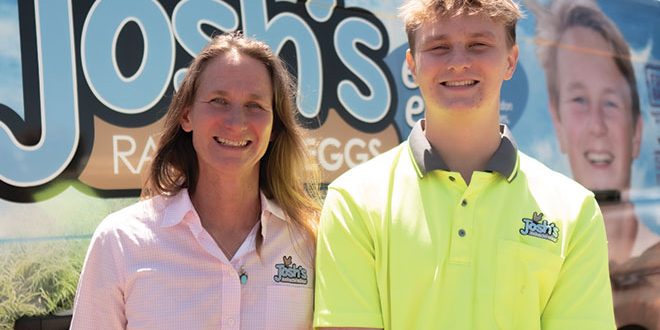AUSTRALIAN Eggs recently announced the launch of EggTrace, a new tool designed to help egg farmers trace eggs back from the point of purchase to the date and location that the eggs were laid.
The development of EggTrace was part of a Commonwealth grant project to drive improved food safety and security across the agriculture sector.
By creating full visibility on the path an egg takes from lay to despatch, egg farmers now have the ability to more easily and efficiently identify any quality or health issues affecting eggs, ensuring a safer and more reliable egg supply chain.
In a recent survey of 5981 Australians, 66.5 percent of respondents indicated that they were concerned about Australia’s food security.
Australian Eggs managing director Rowan McMonnies said improved traceability coverage will make the egg industry more resilient and improve Australia’s food security.
“Australians consume about 17.3 million eggs a day, so if the quality or safety of our eggs is under threat, it would have major implications to our national food supply,” Mr McMonnies said.
“EggTrace is a browser-based tool that works by providing farmers with the insights they need to isolate, neutralise and rectify any issue on-farm before it causes significant food supply issues, and is linked to the production type and best before date.
“As the global trend towards transparency and traceability in the food chain accelerates, traceability has become even more important in ensuring that we have the trust and confidence of Australians.”
Australians care where their eggs come from, a fact reflected in the survey which showed most Australians – 69.1 percent – prefer to buy eggs from retailers that require eggs to be traceable back to the farm.
A significant majority – 86.8 percent – agree that traceability is important in ensuring food safety.
While most large egg producers have robust traceability systems in place, for some smaller producers previously there have been knowledge, technical or financial barriers in place, which has meant that traceability has not extended beyond the mandatory stamping of eggs.
“Australian Eggs is breaking down the remaining barriers to broader traceability coverage by putting resources in the hands of farmers to help them trace the movements of their eggs,” Mr McMonnies said.
Josh’s Rainbow Eggs chief executive officer Dr Tamsyn Murray said traceability is one of the most critical components of the business.
The producer – who supplies eggs to Woolworths and Coles supermarkets – said that Josh’s Rainbow Eggs’ traceability system helps them sleep at night.
“As egg producers, we are responsible for every egg we sell.”
“Each egg must be the best possible egg – nutritious, tasty and safe.
“Our traceability system allows us to immediately rectify any issues with egg production and ensures that we are only providing the best eggs to our customers,” Dr Murray said.
In addition to the new software tool, Australian Eggs has also developed a suite of resources for egg farmers, including a traceability manual, factsheets and more – available at australianeggs.org.au/for-farmers/traceability

